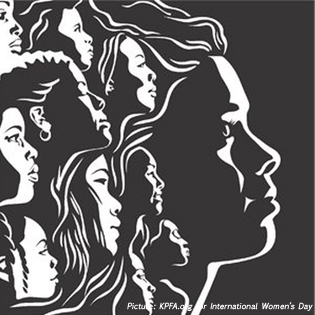 International Women’s Day which falls today, March 8 2016, is a day where women around the world commemorate their successes in various fields, both economic, political and social.
International Women’s Day which falls today, March 8 2016, is a day where women around the world commemorate their successes in various fields, both economic, political and social.
In Indonesia, unfortunately, there are still many things that prevent women from developing and becoming more involved in various community activities. One of them is the strong patriarchal system in the village and discriminatory behavior. As a result, men often dominate the ranks of change agents in the village.
However, different conditions occurred in the 100 PATTIRO assisted villages in South Sulawesi Province and Banten Province. Women actually “dominate” the stage of village empowerment communities, especially in the health sector.
PATTIRO researcher Didik Purwondanu said that the majority of citizen activists who participated in pushing for improvements in services and public health status as well as actively carrying out social monitoring in the 100 villages were women. “In each village, on average there are 10-15 citizen activists who we facilitate to then move independently to solve health problems in their village. “And, 70% of the citizen activists are women,” said Didik.
Didik said that female community activists in one of the villages in South Sulawesi were even able to advocate and encourage their village government to build a Posyandu. “They have also been involved in village development planning. “They asked the village government and the Head of the Community Health Center to allocate a budget to renovate and equip the Posyandu facilities,” added Didik.
In another village, added Didik, thanks to the encouragement and efforts of mothers advocating for the Head of the Community Health Center, poor performing village midwives were removed from their positions. “Because of the hard efforts of these women, the health services provided by village midwives are now better,” he explained.
Apart from that, even though they have dual roles, as housewives and workers, many women are still able to be involved in village community empowerment activities, such as Ida Fitriani, a health cadre in a village in Semarang Regency whom PATTIRO has accompanied. “Armed with the information PATTIRO provided, I now often socialize how to register and use the BPJS Health card to people in my area. “If I don’t move, residents won’t know how to do it because there’s very little socialization from the government,” said Ida.
Ida said that the role of women as agents of change in the health sector is very large. “Mothers respond more quickly to health issues around them compared to their fathers. “Yesterday, when there was a case of dengue fever in my village, the women came to the Community Health Center and reported this finding,” said Ida.
Didik further said that the active involvement of these women shows that women have the same ability as men to empower the community around them, as long as they are given information and educated on how to make changes.
“In the past, women were often used as objects of health programs such as maternal and child health programs, as well as reproductive health programs, now, they are able to become subjects of health programs and are able to act as agents of change. “The point is, give them knowledge and opportunities,” concluded Didik.
This article was published on Tribunnews.com with the title Hari Perempuan Internasional, Perempuan Mulai Aktif Berperan Sebagai Agen Perubahan Desa.




